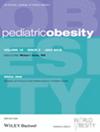The association of breastfeeding duration on metabolic syndrome among children and adolescents, stratified by birth weight for gestational age
Abstract
Background and Objectives
This study aimed to examine the associations between breastfeeding duration and metabolic syndrome (MetS) in adolescents and to further investigate the role of birth weight for gestational age (GA) on these associations.
Methods
A total of 10 275 participants aged 7 to 18 years were included applying multistage cluster random sampling from a Chinese national survey. Birth weight was classified into small for GA (SGA), appropriate for GA (AGA) and large for GA (LGA). Information was collected through a self-administered questionnaire, physical examination and blood biochemical examination. Multivariable linear regression, logistic regression models, restricted cubic spline models were applied to assess the relationships of breastfeeding duration and MetS with different birth weight for GA.
Results
The prevalence of non-breastfeeding, 0–5, 6–12 and >12 months groups were 16.2%, 23.1%, 42.5% and 18.2%, and the prevalence of SGA and LGA was 11.9% and 12.7%, respectively. Prolonged breastfeeding duration was associated with higher odds of MetS (β: 0.08, 95% CI: 0.03, 0.13), WC (β: 3.49, 95% CI: 2.82, 4.16) and SBP (β: 2.34, 95% CI: 1.80, 2.89). SGA and prolonged breastfeeding synergistically increased MetS risks, but LGA appeared to offset the adverse effects of prolonged breastfeeding.
Conclusion
Prolonged breastfeeding may increase children's MetS risks. SGA synergies with prolonged breastfeeding increased MetS burden in children and adolescents, while LGA mitigated the risks. This reminds us that intensive attention should be paid to both early birth weight and subsequent living environment for children and adolescents' lifelong health.

 求助内容:
求助内容: 应助结果提醒方式:
应助结果提醒方式:


